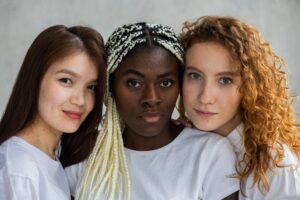The downside of good intentions
Idealism and good intentions
 In my intercultural work, I encounter a great diversity of people. Most have been working internationally for some time and want to sharpen their intercultural craftsmanship. Others are being sent out for the first time, for example for a one-time international consulting job, volunteer work or an internship. Those who travel to the Global South, in particular, are often idealistic and full of good intentions. The interesting – and positive – thing is that more and more people are questioning these best intentions for themselves.
In my intercultural work, I encounter a great diversity of people. Most have been working internationally for some time and want to sharpen their intercultural craftsmanship. Others are being sent out for the first time, for example for a one-time international consulting job, volunteer work or an internship. Those who travel to the Global South, in particular, are often idealistic and full of good intentions. The interesting – and positive – thing is that more and more people are questioning these best intentions for themselves.
- What are my blind spots when I want to help people but don’t know the context?
- Who am I really to share knowledge?
- How relevant is my knowledge in that totally different context?
- And … can’t I contribute better by staying home?
Getting to the bottom of unconscious bias
Some time back I was asked to fill in the theme ‘Doing Good’ for Studium Generale of Delft University of Technology and the Fringe Festival. Below you can see the video clip of this session where first Omid Kheirabadi explains his provocative performance ‘Alive & Unborn‘. My presentation focused on our own unconscious thinking and specifically how unconscious biases generate automatic thought processes and blind spots. In everyday life this autopilot is quite useful but in international work, especially with the best intentions in unfamiliar contexts, check-and-double-check is crucial!
Nuanced depiction of the Global South
The media often presents us with a one-sided and therefore unsubtle picture of countries and people in the Global South. The story often revolves around people living in poverty and in need of help. This image repeats itself, reinforces itself and anchors a Western stereotypical image of developing countries in our mind. The result is white savior syndrome, a bias based on selective and simplified perception, us-them thinking and the over-confidence effect. For years I have been inspired by the work of SAIH (the solidarity organization of students and academics in Norway) and their Radi-Aid program which addresses North-South perceptions in a thought-provoking way. Here are two video clips you must have seen!

